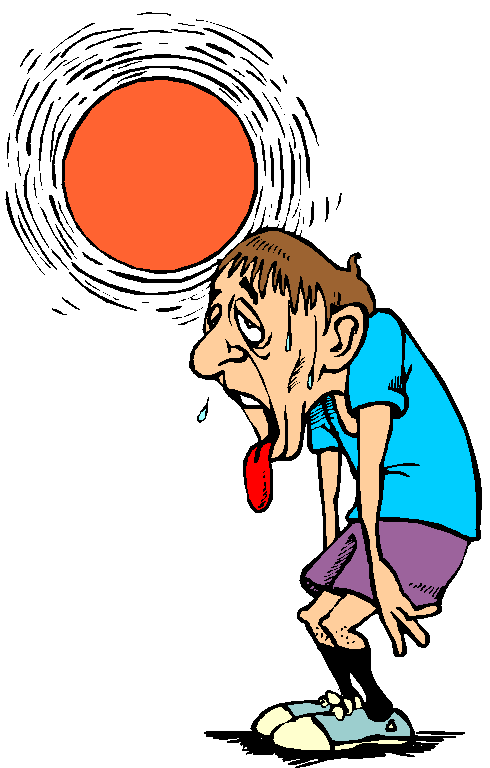 This is from a 2002 news article.
This is from a 2002 news article.One deadly natural disaster: The heat wave
By Tara Bahrampour, NY Times News Service
Natural disasters usually come rife with drama. Hurricanes, tornadoes, forest fires, earthquakes-all make for good headlines and even better visuals.
But it would be hard to make a blockbuster movie about a heat wave. Heat waves come on subtly, raising summer temperatures just a little higher than normal and then receding. But they kill more people in the United States than all other natural disasters combined.
According to the Center for Climatic Research at the University of Delaware, an average of 1,500 American city dwellers die each year because of the heat. Annual deaths from tornadoes, earthquakes and floods together total fewer than 200.
The most deadly US heat wave in recent years occurred in Chicago over a week in July 1995, when temperatures hovered around 100 degrees. Then, over 50,000 people were left without electricity, nearly two dozen hospitals closed their doors to new patients, ambulances lined up around the block waiting to drop off victims, and the county buried 68 people in a 160-foot-long trench. Scientists say that 739 people died that week.
For context, the great Chicago fire of 1871 killed half that many. The San Francisco earthquake of 1989 killed 62, and Hurricane Andrew in 1992 killed 26.
People find it hard to consider heat as a disaster, said Dr. Eric Klinenberg, a sociologist at New York University and the author of Heat Wave: A Social Autopsy of Disaster in Chicago. Heat waves cause little visible destruction. "If a tornado touches down, the moment it hits, you can assess the damage," he said. With heat, at worst, roads buckle, trains derail and livestock die.
It does not take a lot of extra heat to kill the vulnerable. "The body works in a very small temperature range," said Dr. Lawrence Robinson, deputy health commissioner of Philadelphia. "The body circulates blood to the skin and perspiration removes heat from the skin. In extreme heat, the heart has to pump faster and harder," leading to heart attacks or strokes. Even a healthy person who overexerts in the heat can die of heat stroke.
No comments:
Post a Comment